Queensland felt genuine bitterness from NSW players during their State of Origin dynasty, champion Maroons fullback Billy Slater says.
And it wasn't until Mal Meninga took over as Kangaroos coach, having led Queensland to nine Origin series wins in 10 years, that the icy relationship thawed.
The Blues lost eight consecutive series to the Maroons from 2006-2013. Such dominance soured the relationship between the Origin rivals.
"Yeah, I think it did. I think the bitterness certainly increased," Slater said on The Dynasty.
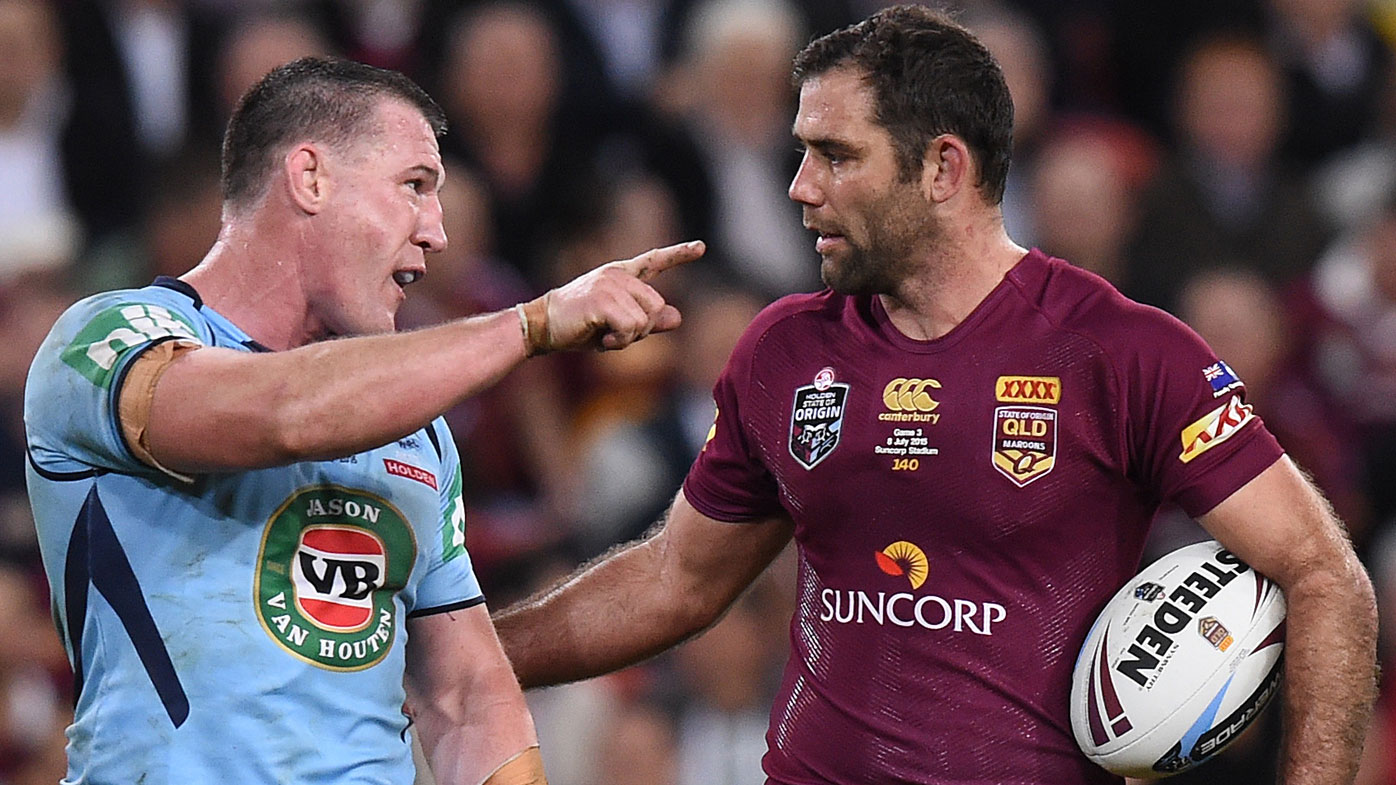
"It was certainly not from us. I just think it was a build-up of frustration and the longer the winning run went for Queensland, the harder it would have been for those NSW players.
"But it wasn't just the players. I felt it was the general public as well and by that happening, you'd think if one team won for such a long period of time, State of Origin would start to die - but it actually got bigger and bigger.
"I think because of the frustration and the bitterness ... Origin just relished that environment."
In 2009, after Queensland had already sealed a historic fourth consecutive series win, a brawl erupted in Origin III that saw Steve Price knocked out by NSW prop Brett White. Blues back-rower Trent Waterhouse was sent off for grabbing Price while he lay unconscious on the ground.
It was branded a "dog act", for which Queensland retaliated by putting up a bomb straight off a tap in the final minute, smashing NSW fullback Kurt Gidley on the return. Another melee began, featuring Justin Hodges and Ben Creagh.
The following year, NSW forward Luke O'Donnell went wild as he put a dangerous tackle on Darius Boyd and tried to headbutt Dave Taylor. Blues hooker Michael Ennis cost NSW a game that series, Origin III, by punching Nate Myles in a late brain-snap.
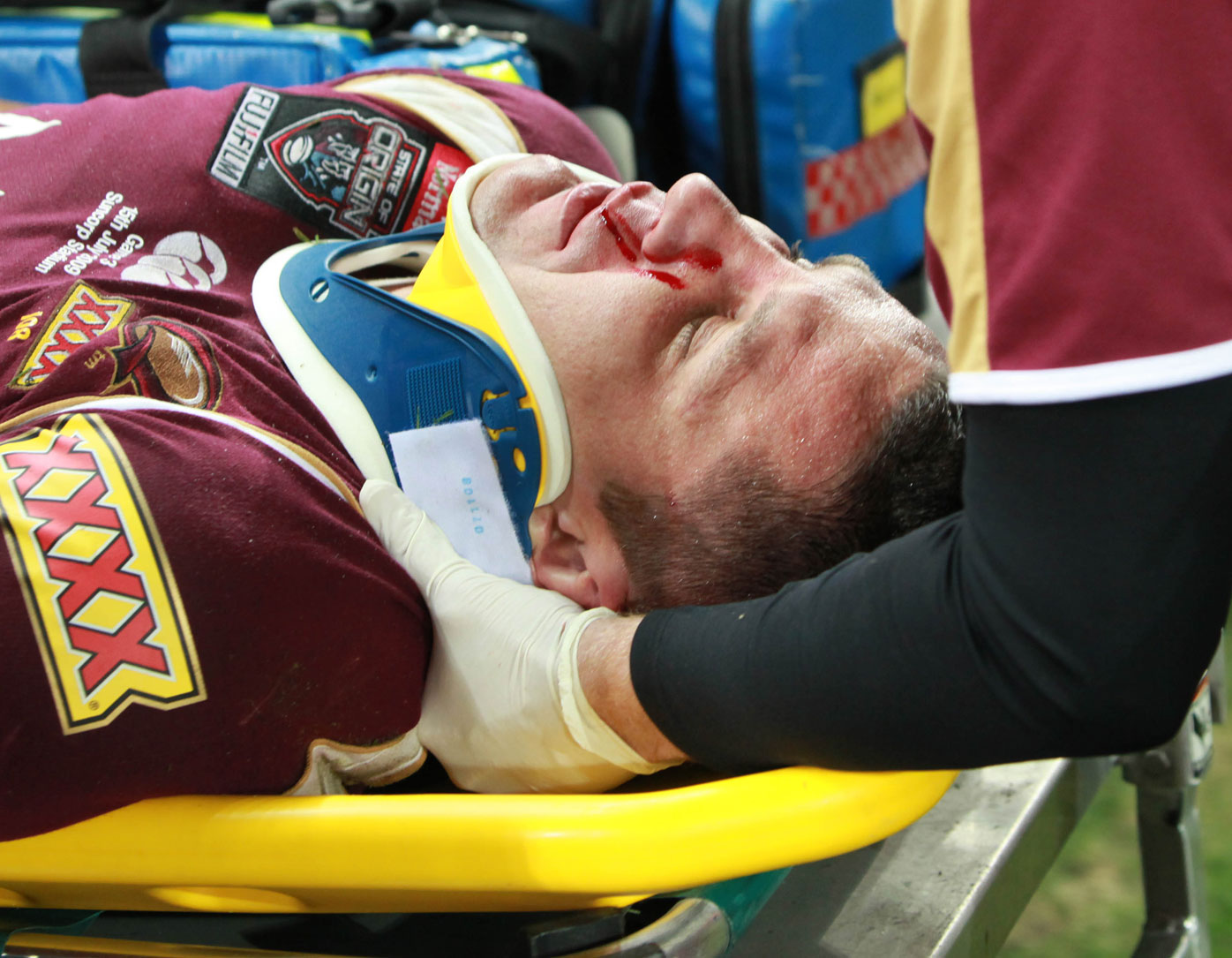
An infamous escalation of Queensland's dominance over NSW came after a 2012 Test match in Townsville, when Maroons stars celebrated victory by singing their Origin ditty Yi Yi Yippee Yippee Yi. Blues players could only stand by awkwardly, silent.
Earlier that year, NSW captain Paul Gallen had revealed that Blues and Maroons players sat at different tables during Kangaroos camps. The following year, Gallen opened the series by punching Myles in the face, claiming it was retribution for constant dirty play from the Maroons.
The rivalry had all the hallmarks of genuine dislike and on Kangaroos duty, NSW and Queensland players were forced together. Queensland great Johnathan Thurston admits that Kangaroos bus rides and meals were often segregated along Origin lines, but without genuine animosity.
"Yeah, there was a fair bit of talk about that when the Kangaroos were chosen, about he rivalry between Queensland and NSW," Thurston said on The Dynasty.
"It wasn't from us that we had that type of bitterness, we were there to do a job for the Kangaroos.
"It was a lot built-up from the media, saying there was real rivalry in the Kangaroos, but from my point of view and I'd say from most players' point of view, we didn't see that."
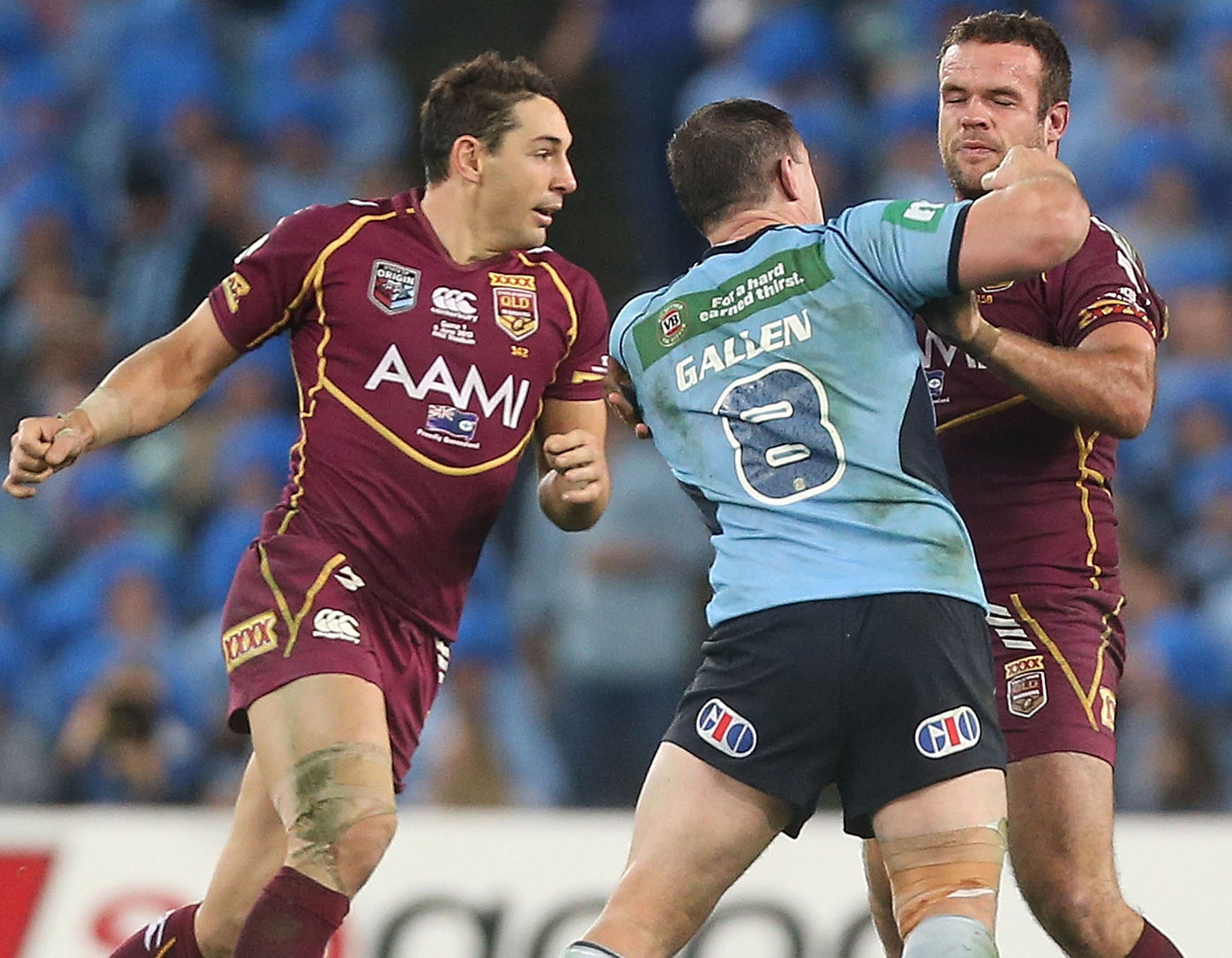
Slater said that rather than snubbing NSW players, the Queenslanders simply developed a deep bond during their historic Origin run.
"We were naturally friends with each other, because we hung around each other for longer and we knew each other better," Slater said.
"We'd go to dinner and there would be three big tables and all of a sudden, there'd be two Queensland tables and one NSW table. And it wasn't a conscious decision, it just happened. We actually consciously tried to split that up without making too much conflict about it."
Thurston believes that NSW coach Ricky Stuart, during his second Blues stint in 2011-12, escalated tensions between the teams. With NSW desperately searching for a way to break Queensland's dominance, Stuart had his players and fans embrace an old-school hatred of the Maroon jersey.
"I think Ricky Stuart's got a lot to do with that mentality," Thurston said.
"He really got the NSW boys with that hatred towards the Queenslanders, but he also grabbed the public and got them on board with it. Because when we were winning so much, you could start to see the crowds dwindle in Sydney.
"But with Ricky Stuart there, he used to get the fans engaged and we'd go down there to play and it would be a packed house. I think Sticky had a lot to do with that."
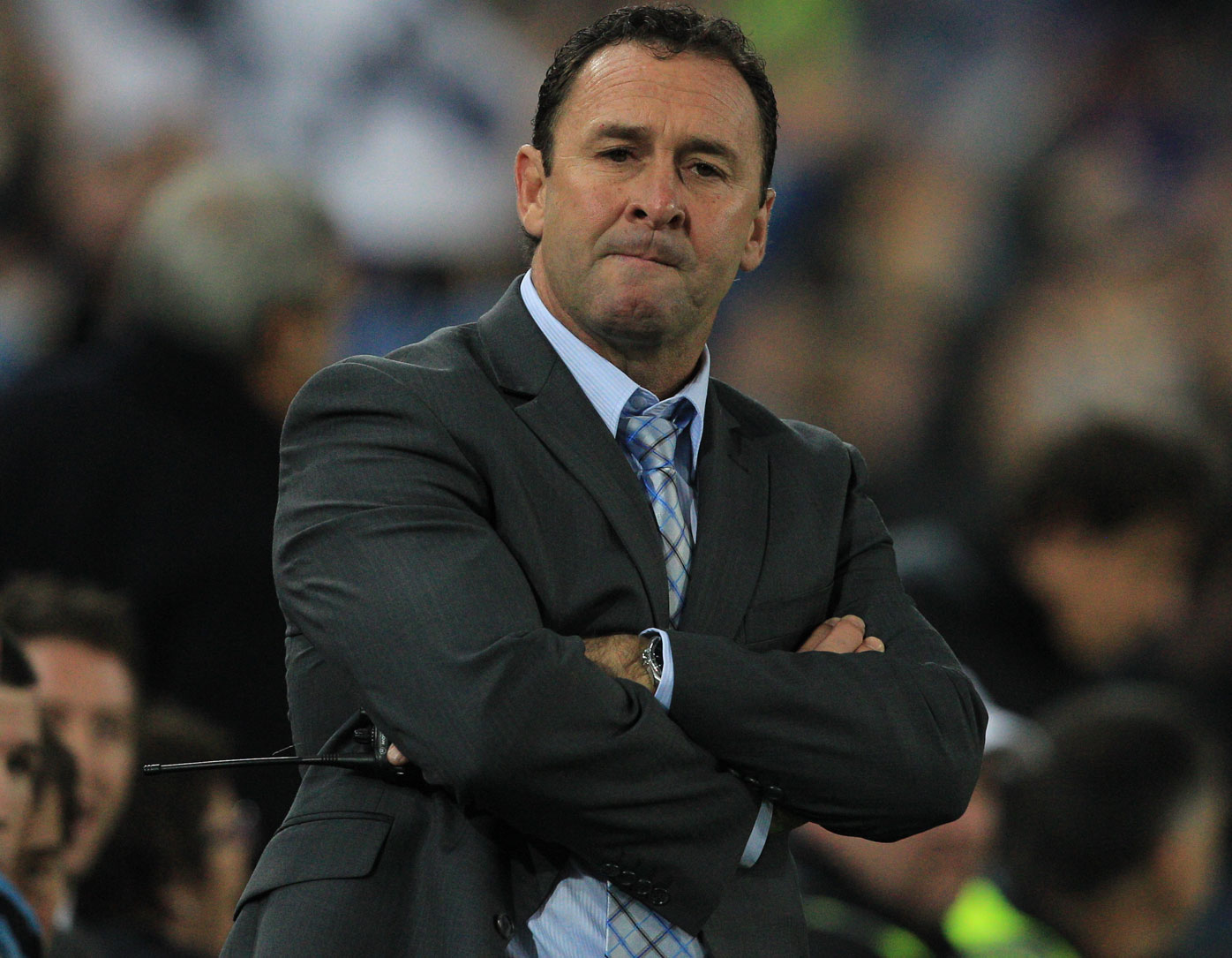
Former Queensland and Australian captain Darren Lockyer said that the Maroons' dominance of the Kangaroos squad was only a reflection of what had happened a decade earlier with NSW.
"I toured in 2001 and I think out of 23 players, there was like four Queenslanders," Lockyer said.
"But by the end of my career, that 2010-11 period, it totally switched around; it was three-quarters Queenslanders to a quarter NSW. So I understood the different dynamics.
"Because there was such a great bond amongst that Queensland team, because they'd been together so long, the banter was always there. It was just natural for them to hang out on the bus together, then they'd go to dinner and hang out. So it just took a little while for the NSW players to integrate into the Australian squad."
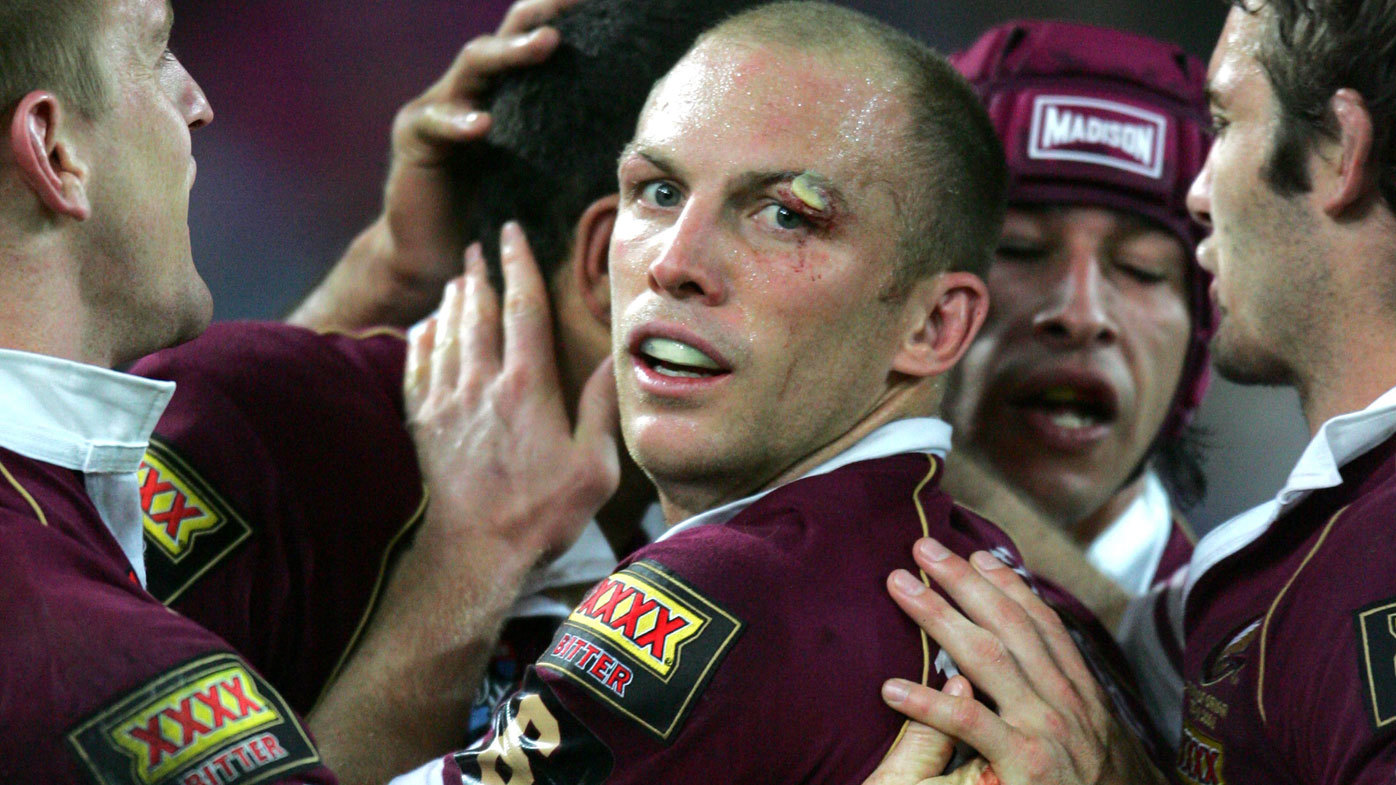
Slater said that Meninga was the man to thank for reuniting the Kangaroos. The rugby league Immortal took over the Australian Test team in 2015 and after a couple of years, produced a master stroke leading into a World Cup.
"I remember going on a 2017 [trip], the campaign started for the World Cup ... we had a trial game over in Fiji and he (Meninga) chartered a flight, and it flew every single player and every single family member of those players on that chartered flight to Fiji," Slater said.
"By the time we landed in Fiji, all the kids were friends, all the partners were friends, and I think it just helped break down that stigma around Queensland-NSW coming together and playing for Australia.
"So it was actually the guy who set this Queensland dynasty up that actually broke it down for the Kangaroos."
Lockyer added: "Mal was very good at making the whole group inclusive of each other and that's why he's so successful in that representative arena."
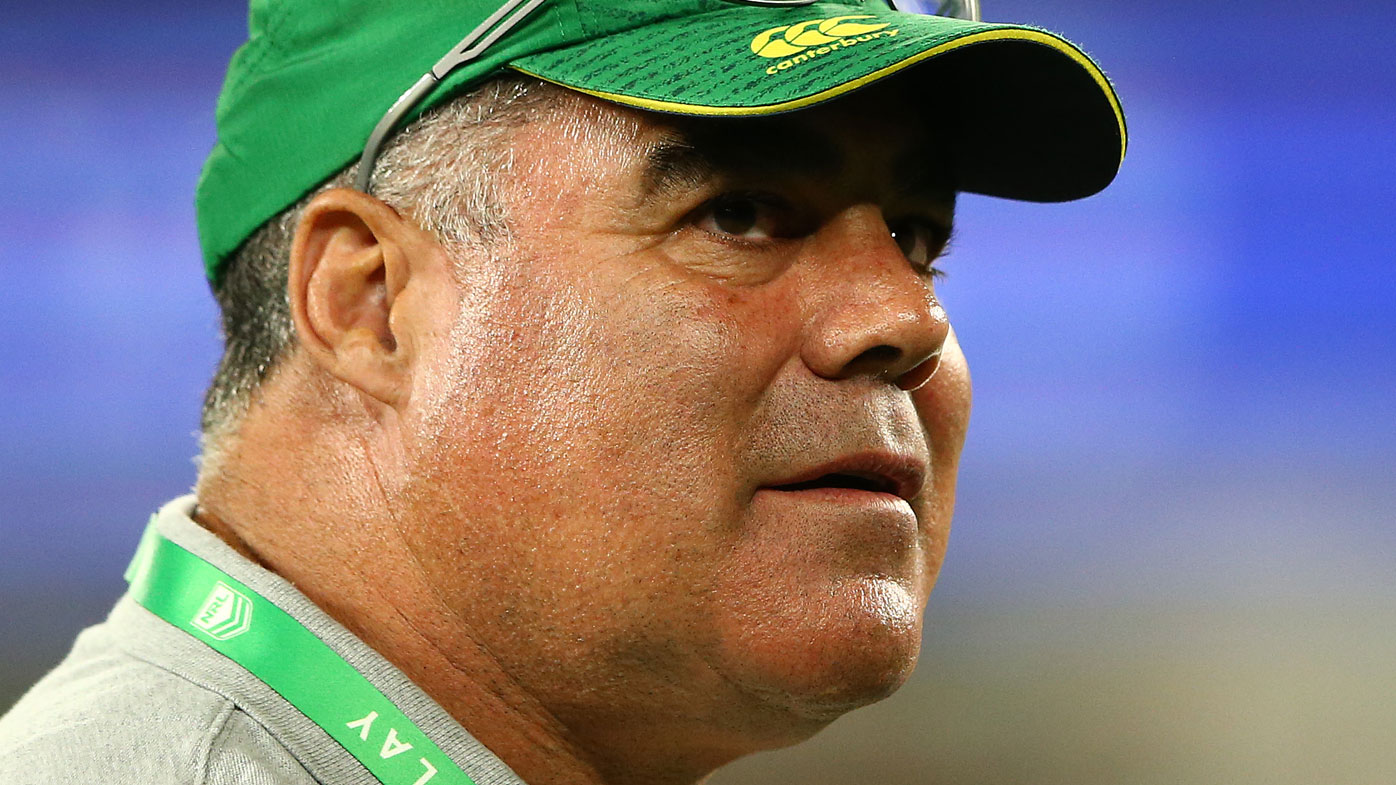
Lockyer insisted that Queensland players never lorded over NSW or their fans with their success during the dynasty era. Certainly any angst felt by the Blues was tempered with respect; Gallen is adamant that Lockyer's successor as Maroons captain, Cameron Smith, is the greatest player he's seen.
"After we'd won four in a row, I think NSW people started to respect the teams somewhat," said Lockyer, a Brisbane Broncos great.
"They appreciated the footy we played. Yes, they were frustrated and wanted to beat us, but...
"Part of our mantra, part of one of our values was being humble through all this. Humility was important to us. It's not like when we were winning all the time we were throwing it in their faces.
"The media, they loved to get this us versus them mentality, because that's what drives ratings, that's what drives people watching the game. We were always respectful of that.
"I think the fans in NSW, they'd come and watch us play and if we were on the night too good, or we'd go down there for our clubs and we'd have a win, I think they appreciated it and they moved on."
Slater can't say the same about heading north on NRL duty with the Melbourne Storm, who also boasted Smith, Greg Inglis and Cooper Cronk during Queensland's historic Origin run.
"Going to Sydney, I don't think it helped. NSW hated the Storm just as much as they hated Queensland, so that certainly didn't help us," Slater said.
"And Cameron Smith was nearly as hated as Wally Lewis! I'm probably not far off either. It was a challenge in itself. You just had to wear it and you use it as a bit of a compliment and a bit of motivation."
from WWOS http://wwos.nine.com.au/nrl/nsw-queensland-state-of-origin-dynasty-bitterness/4ca5ec74-45b2-427d-a2c3-6e382fed2a60


0 Comments